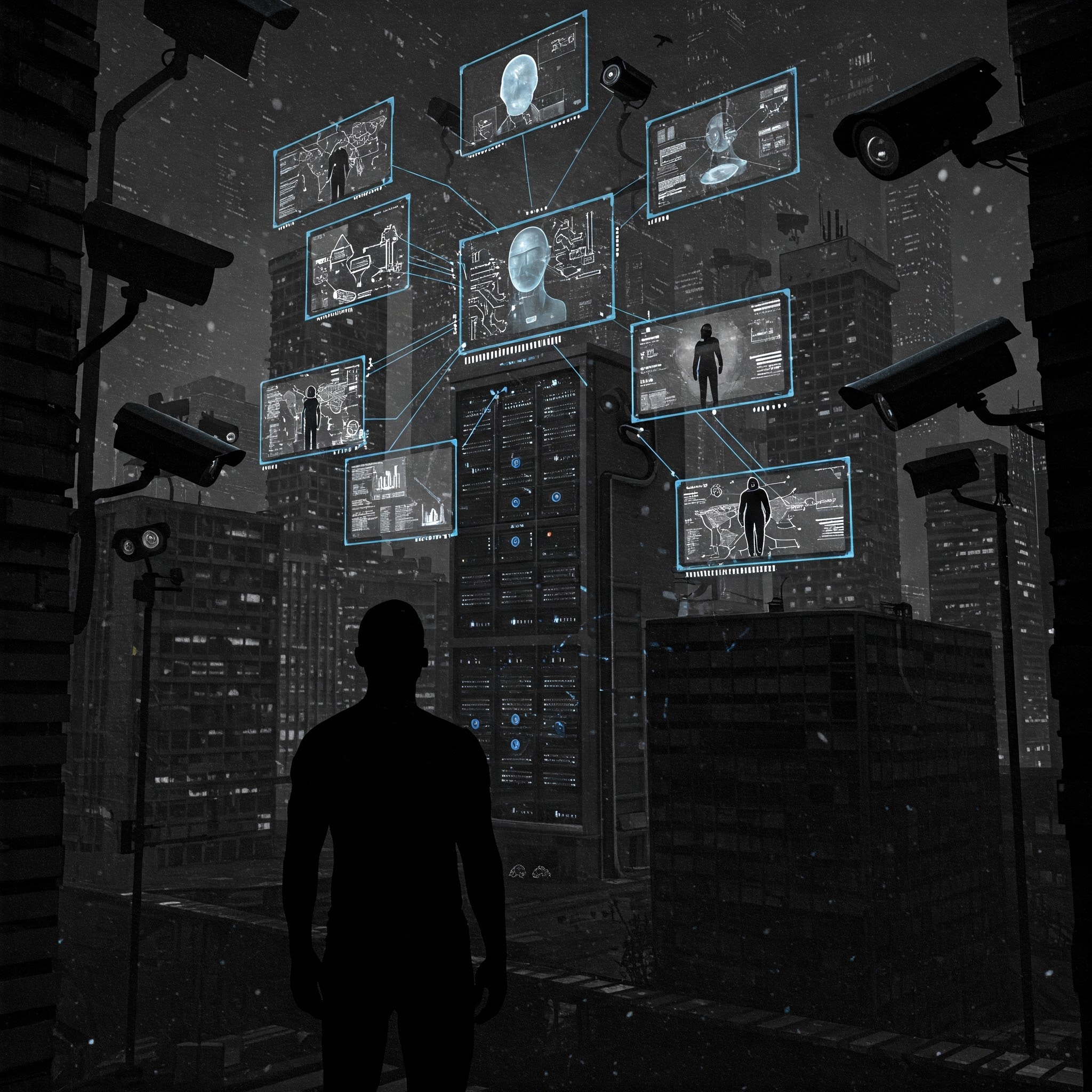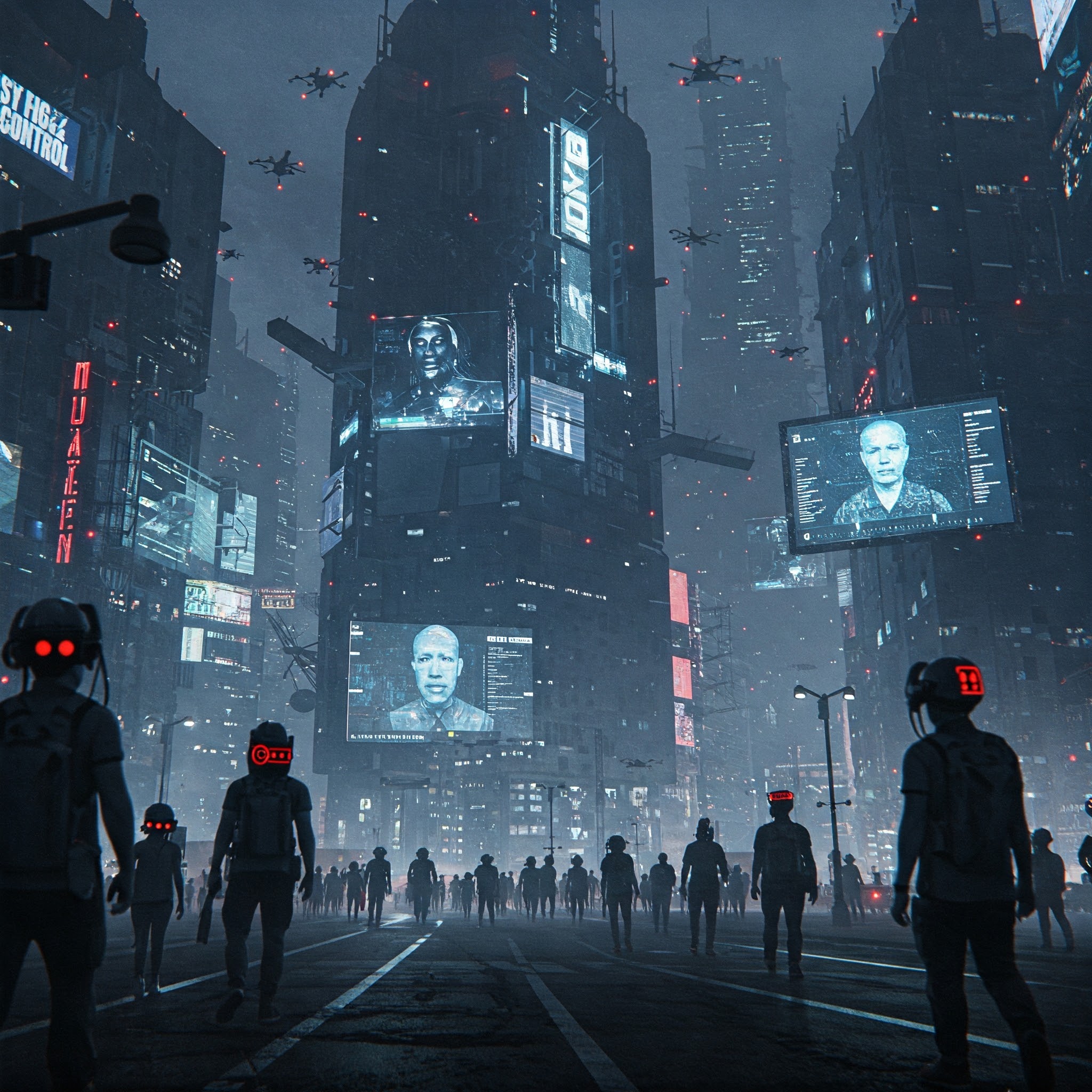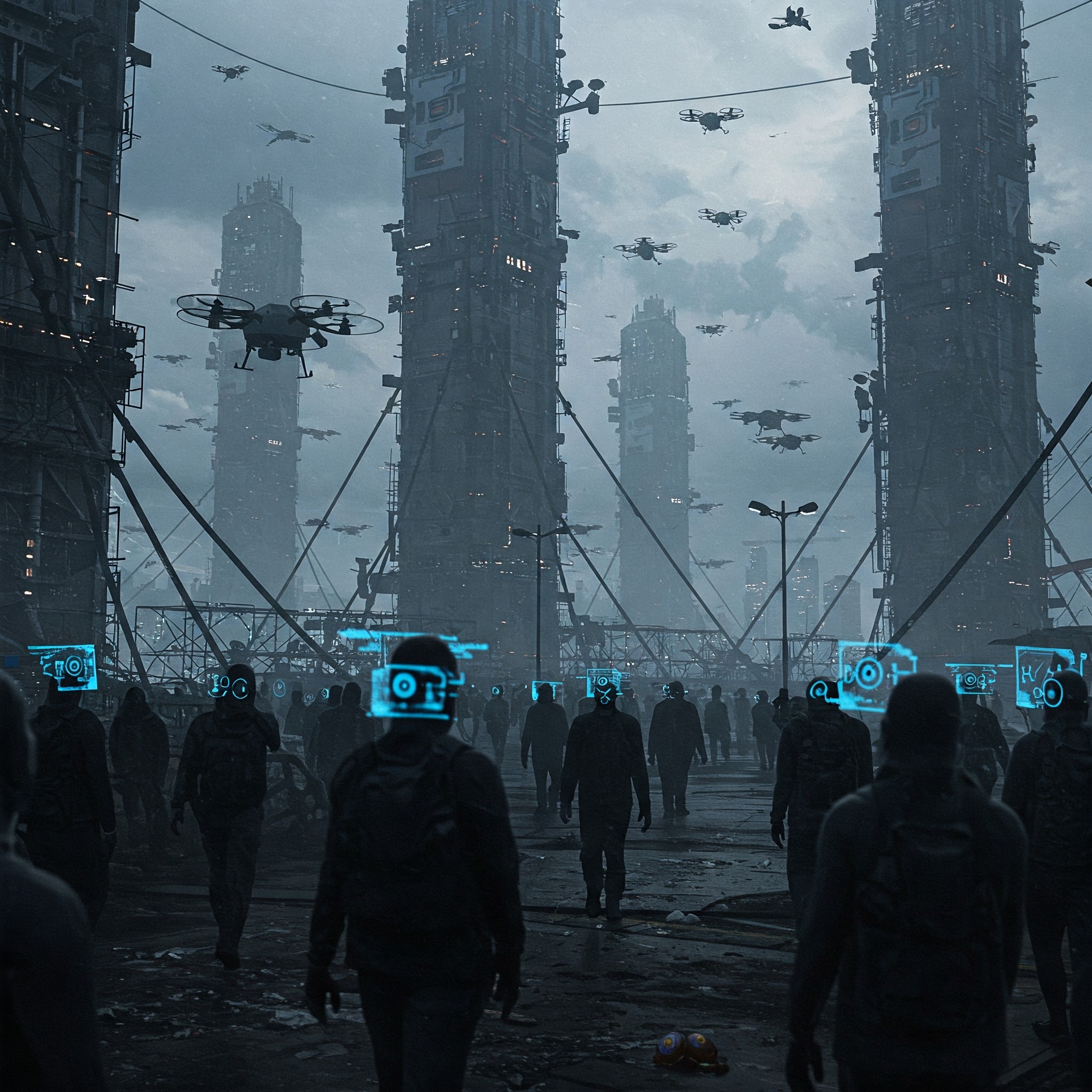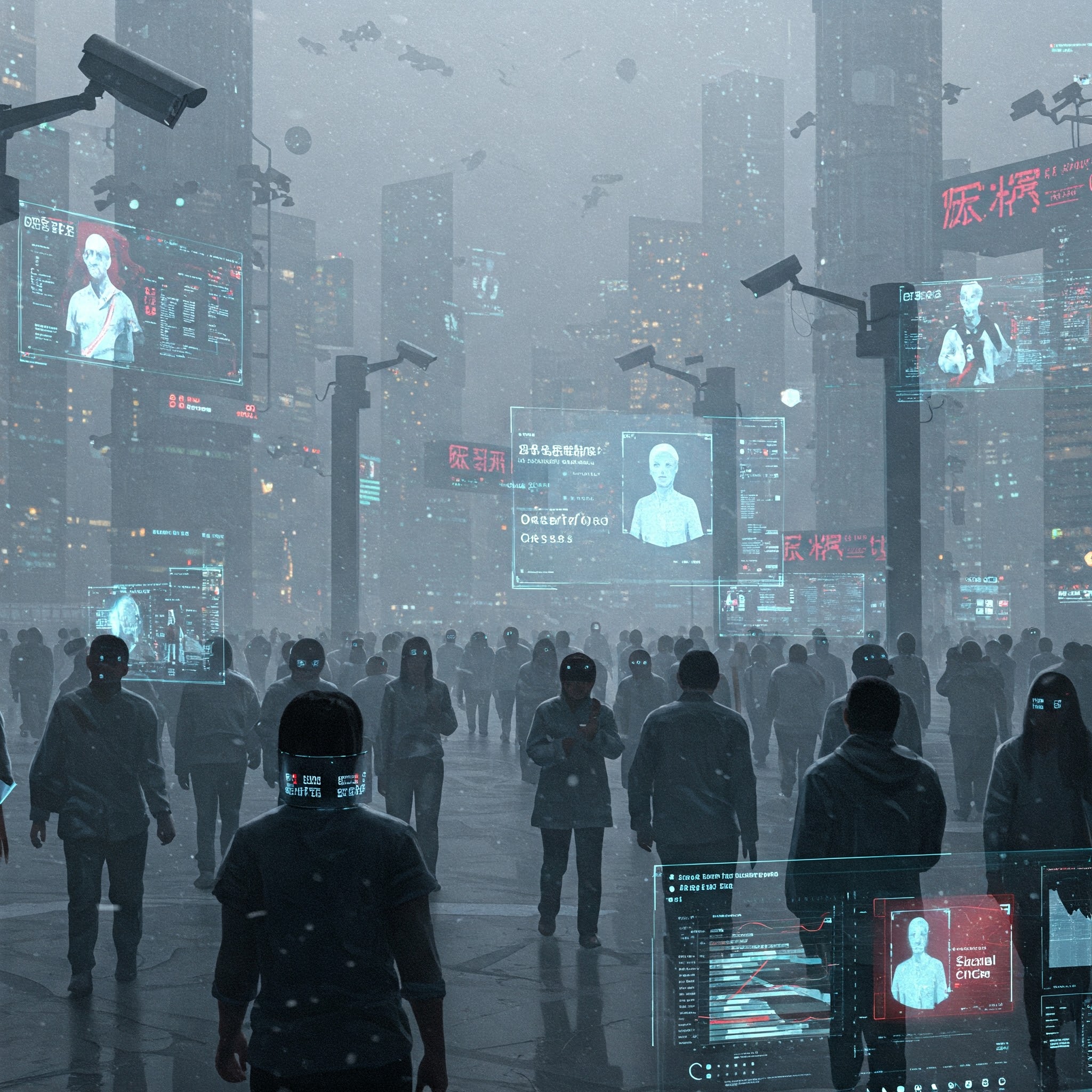
Facial recognition and data-mining AI technologies pose significant threats to personal privacy and freedom, raising ethical, legal, and societal concerns. Here’s how they contribute to privacy invasion and mass surveillance:

1. Mass Surveillance & Loss of Anonymity
Government & Law Enforcement Overreach: Many governments use facial recognition for public surveillance, tracking citizens without consent. This enables authoritarian control, stifles dissent, and chills free expression.
Public Space Monitoring: Cameras with AI-powered facial recognition in streets, airports, and stores erase anonymity, turning society into a panopticon where every move is logged.
2. Corporate Data Exploitation
Social Media & Advertising: Companies like Meta (Facebook), Google, and TikTok harvest facial data to build hyper-targeted profiles, manipulating behavior and preferences.
Retail & Banking Surveillance: Stores use facial recognition to track shoppers, while banks employ AI-driven identity verification, often without transparency.

3. Bias & Discrimination
Racial & Gender Bias: Studies show facial recognition is less accurate for women and people of color, leading to wrongful arrests (e.g., cases in the U.S. where Black men were falsely identified).
Predictive Policing: AI-driven surveillance disproportionately targets marginalized communities, reinforcing systemic discrimination.
4. Lack of Consent & Legal Protections
Covert Data Collection: Many people are unaware they’re being scanned or profiled, violating the principle of informed consent.

Weak Regulations: Laws like GDPR (EU) and CCPA (California) provide some protections, but enforcement is inconsistent, and many countries lack strong privacy laws.
5. Chilling Effects on Freedom
Self-Censorship: Knowing you’re being watched alters behavior, discouraging activism, free speech, and dissent.
Social Credit Systems: Countries like China use AI surveillance to enforce compliance, restricting freedoms based on behavior scores.
6. Cybersecurity Risks
Data Breaches: Stored facial recognition data is a goldmine for hackers, leading to identity theft and fraud.
Deepfake Misuse: AI can manipulate facial data to create fake videos, enabling blackmail or disinformation campaigns.
How to Resist & Protect Privacy
Demand Stronger Laws: Push for bans or strict regulations on facial recognition (e.g., San Francisco’s partial ban).
Use Privacy Tools: Encrypted messaging (Signal), VPNs, and anti-facial recognition clothing/glasses can help evade tracking.
Support Ethical AI: Advocate for transparent, bias-free AI development with public oversight.

Powered by Froala Editor

Parenting
Dependence on AI & Loss of Human Skills
Artificial Intelligence (AI)
AI in Cybersecurity: Hacking & Cybercrime
Artificial Intelligence (AI)
Existential Risk & Superintelligent AI
Artificial Intelligence (AI)
AI Manipulation & Behavioral Control